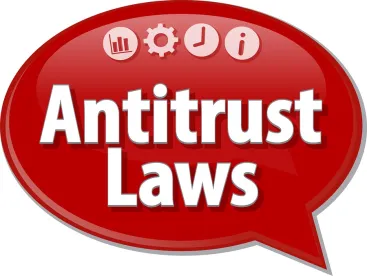What Happened:
-
Last week, the Antitrust Division reported that it has changed its Justice Manual to state that it will consider antitrust compliance at the charging stage in criminal antitrust investigations, instead of waiting for plea negotiation or the sentencing stage.
-
Previously, the Antitrust Division had granted leniency only to the first whistleblower to come completely clean. Under the Antitrust Division’s policy reversal, this is no longer the only way to gain credit with the Antitrust Division, and the Antitrust Division will now consider if the Company has “robust” compliance programs when determining whether to bring charges.
-
With the announcement this past Thursday, the Antitrust Division published a guidance document that focuses on evaluating compliance programs in criminal antitrust investigations. This is the first time the Antitrust Division has published guidance on evaluating compliance programs in the context of criminal antitrust violations, and companies can now use this document to determine whether their compliance programs are in line with the Antitrust Division’s standards.
-
The Antitrust Division lists certain factors that Antitrust Division prosecutors should consider when evaluating the effectiveness of an antitrust compliance program. These are:
-
The design and comprehensiveness of the program
-
The culture of compliance within the company
-
Responsibility for, and resources dedicated to, antitrust compliance
-
Antitrust risk assessment techniques
-
Compliance training and communication to employees
-
Monitoring and auditing techniques, including continued review, evaluation and revision of the antitrust compliance program
-
Reporting mechanisms
-
Compliance incentives and discipline
-
Remediation methods
-
-
In general, when analyzing a program, the Antitrust Division will ask whether the compliance program is well designed, whether it is being applied earnestly and in good faith, and whether it works.
-
Finally, the Antitrust Division also revised sections of its Manual on the processes for recommending indictments, plea agreements and selecting compliance monitors.
What this Means:
-
To take advantage of this new guidance from the Antitrust Division, companies should evaluate their current antitrust compliance policies and, if necessary, bolster them to be able to take advantage of the Antitrust Division’s new leniency policy.
-
Companies seeking to implement best practices following this announcement should take the following steps:
-
Have a clear written antitrust compliance policy that is available to all employees.
-
Conduct regular antitrust compliance training and refresh trainings on a yearly basis. All new hires should also receive antitrust training.
-
Have a system in place for employees to report any potentially anticompetitive behavior.
-
Develop meaningful consequences for violations of the company’s compliance rules.
-
Conduct periodic targeted email searches to determine if employees are in compliance with the company’s compliance policy.
-
Emphasize the importance of compliance from senior management to the corporation’s culture and way of doing business.
-





 />i
/>i
